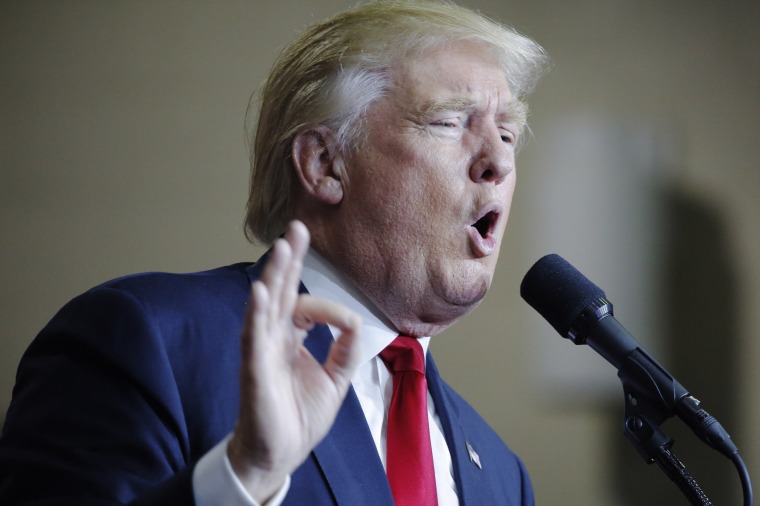The latest wrinkle in Donald Trump's tax plan cuts to the heart of a Wall Street crowd that has been one of the favorite demons of this presidential campaign.
Specifically, the revised top tax rate of 33 percent addresses a major criticism of his original plan, namely that the elimination of a tax dodge for private equity and hedge fund managers was in fact a ruse that would result in them paying little if any extra taxes.
At play is what's known as the "carried interest" exemption. Essentially, it allows big money managers to count earnings as capital gains instead of ordinary income. The tax implications are substantial: Capital gains currently carry a tax rate of 23.8 percent, while labor income is taxed at 39.6 percent. Closing the loophole would generate $17 billion in tax revenue over a 10-year period, the Congressional Budget Office has estimated.
Read More From CNBC: Donald Trump Just Made a Major Change to His Tax Plan
Trump has said multiple times that he wants to get rid of carried interest, and he repeated that plan in his much-anticipated economic policy speech Monday in Detroit.
"The rich will pay their fair share, but no one will pay so much that it destroys jobs, or undermines our ability as a nation to compete," Trump said. "As part of this reform, we will eliminate the carried interest deduction and other special interest loopholes that have been so good for Wall Street investors, and for people like me, but unfair to American workers."
That's all well and good, except for one thing: Under the original Trump plan, that elimination of carried interest went along with a reduction in the top rate for income to 25 percent. So the tax rate private equity and hedge fund managers would pay would edge up only 1.2 percentage points even on the surface.
But when combined with a reduction of the tax rate for business income down to 15 percent, Trump's plan actually would reduce revenue, according to an analysis by the Brookings Institution's Tax Policy Center. (Brookings is a liberal think tank.) That's because those earning carried interest that are classified as partnerships would be taxed at the 15 percent rate.
Raising the top tax rate, then, seems at least some effort to address the loophole-inside-of-a-loophole inherent in the carried interest plan. It would create a higher tax bracket then he originally had indicated for the wealthy in an effort to show that he sympathizes with the plight of middle America.
Before Monday, critics of Wall Street privilege have been hammering Trump over the weak carried interest plan (as well as on a potential $10 trillion revenue shortfall in his economic proposals). After the speech, it was the other side hitting back.
Read More From CNBC: Holding His Tongue Through Protests, Trump Goes at Clinton for Tax Plan
"Donald Trump's call for the elimination of carried interest demonstrates an unfortunate misunderstanding of the critical role it has played in the growth of the U.S. entrepreneurial ecosystem," Bobby Franklin, president of the National Venture Capital Association said in a statement.
"Despite the populist uproar, carried interest has been an important feature of the tax code that properly aligns the long-term interests of investors and entrepreneurs to build great companies together, and is only realized after our country receives the benefit of greater economic activity," he added.
The carried interest provision is one in which the candidates agree at least in a general sense. Democrat Hillary Clinton has gone as far as promising to ask the Treasury Department to close the loophole if Congress doesn't act.
Clinton's stance comes even though she has been a major beneficiary of Wall Street largess. She has raised more than $41 million from the financial industry during this campaign, compared with about $375,000 for Trump, according to Open Secrets.
